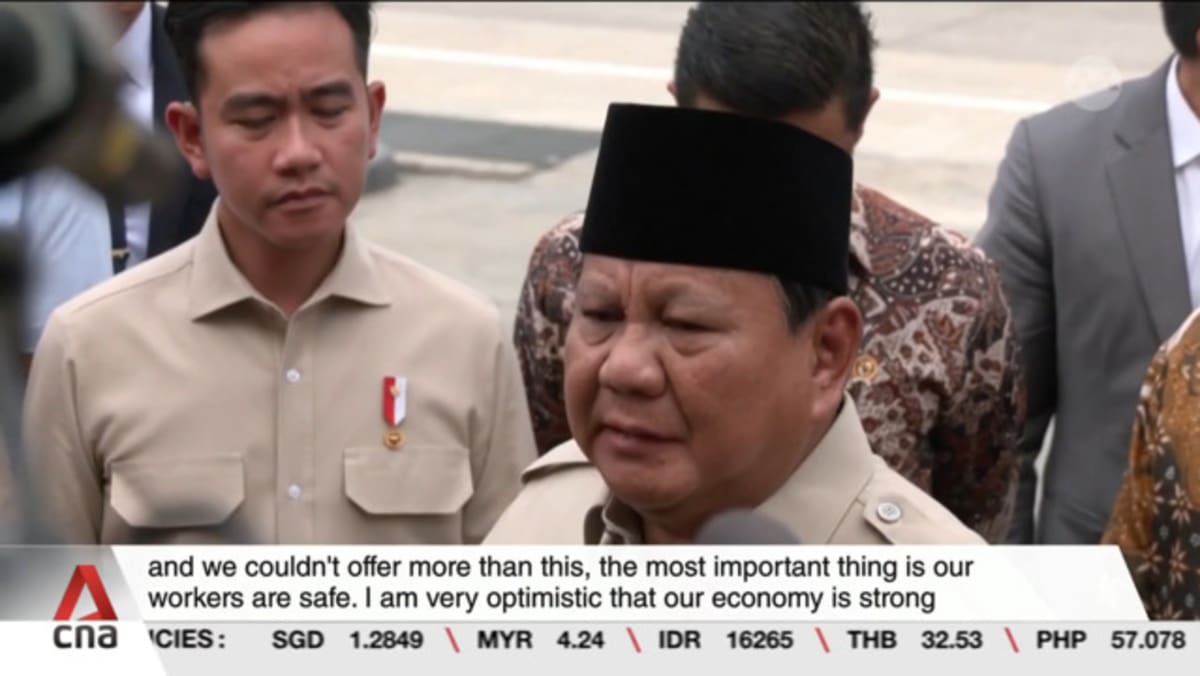In a strategic move to fortify economic relations, President Donald Trump has finalized a significant trade agreement with Indonesia that will lower tariffs on Indonesian goods from 32 percent to 19 percent.
Did You Know
There’s a species of jellyfish that’s immortal.
?
AD
This monumental deal comes as part of a broader effort to strengthen ties with Southeast Asian nations and address the substantial trade deficit the U.S. has experienced with Indonesia. Indonesian President Prabowo Subianto has welcomed this development, heralding it as the beginning of a "new era of mutual benefit" for both countries.
The trade agreement marks a critical expansion of bilateral cooperation, committing Indonesia to purchase US$15 billion in U.S. energy products and an additional US$4.5 billion in other goods. This substantial investment is expected to enhance economic opportunities and provide a boost to both nations' economies. As these diplomatic ties deepen, the deal has invigorated discussions on developing future agreements, showcasing a mutual interest in fostering a resilient trading relationship.
However, the announcement does not occur in a vacuum. As Trump pushes forward with this new strategy, the European Union is preparing to retaliate against U.S. tariffs, targeting billions in U.S. imports. This tension signals an increasingly complex web of global trade relationships where nations grapple with evolving economic policies. The implications of this trade deal with Indonesia could reverberate throughout the international market, highlighting the delicate balance of power and the ongoing negotiation battle within the realm of global commerce.
Q&A (Auto-generated by AI)
What are the implications of the 19% tariff?
The 19% tariff on Indonesian goods significantly lowers the previous rate of 32%. This reduction is expected to enhance trade relations between the U.S. and Indonesia, promoting increased exports from Indonesia. However, it may also lead to higher prices for U.S. consumers on certain goods. Additionally, the agreement could signal a shift in U.S. trade policy, emphasizing negotiations over tariffs, which may influence future trade deals with other countries.
How does this deal affect US-Indonesia relations?
The trade deal marks a positive development in U.S.-Indonesia relations, fostering a sense of cooperation and mutual benefit. Indonesian President Prabowo Subianto hailed it as a 'new era,' suggesting that it may lead to deeper economic ties. This agreement could also strengthen Indonesia's position in Southeast Asia, as it navigates complex relationships with other global powers, notably China.
What led to the trade negotiations with Indonesia?
The trade negotiations were prompted by President Trump's intention to impose a higher tariff on Indonesian imports. Facing a $18 billion trade gap with Indonesia, the U.S. sought to renegotiate terms to reduce the tariff burden. The discussions reflect broader efforts by the Trump administration to recalibrate trade relationships and address perceived imbalances in international trade.
What are the potential impacts on Indonesian exports?
With the tariff on Indonesian goods reduced to 19%, Indonesian exports may become more competitive in the U.S. market. This could lead to an increase in exports of textiles, agricultural products, and other goods. However, exporters must also consider the costs associated with compliance and potential retaliatory measures from other trading partners, particularly in the context of ongoing global trade tensions.
How does this tariff compare to previous rates?
The new 19% tariff represents a significant reduction from the previous 32% rate that was set to take effect. This change reflects a shift in U.S. trade policy aimed at fostering better relations with Indonesia while addressing trade imbalances. The reduction is seen as a strategic move to maintain favorable ties and encourage more robust trade flows between the two nations.


















